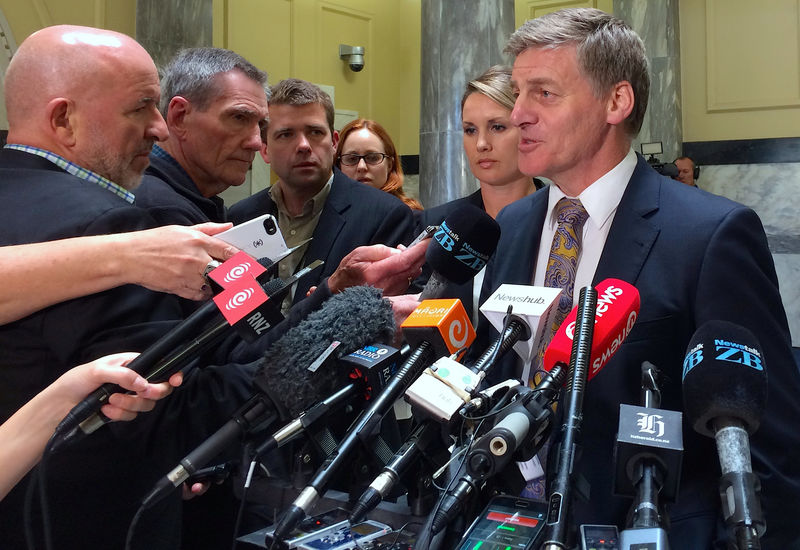WELLINGTON, Dec 8 (Reuters) - The New Zealand government downgraded its budget surplus estimate for 2016/17, largely due to an estimated NZ$1 billion in net costs related to a devastating earthquake that rocked the island nation last month.
The government expects to post a NZ$473 million surplus in the year to June 2017, lower than its prior forecast of NZ$719 million, it said in its half-year economic and fiscal update on Thursday.
The surplus is, however, expected to jump to NZ$8.5 billion by 2020/21, as revenues outpace expenses.
New Zealand's NZ$250 billion economy has taken a hit in recent quarters from a sharp drop in dairy exports - its mainstay foreign exchange earner - and a slowdown in its key trading partner China.
However, the government expects gross domestic product to expand around an average 3 percent over five years, stronger than forecast in 2016.
While the recent earthquake caused significant damage and will affect economic activity in some regions, it is not expected to disrupt the country's overall growth momentum.
"The more positive outlook for the economy is driven by high levels of construction activity, exports, particularly tourism, a growing population and low interest rates," Finance Minister Bill English said.
New Zealand has seen an unprecedented wave of net migration, partly due to Kiwis returning home from Australia as the economy cools across the ditch.
Global dairy prices have been in a tear since July, jumping 56 percent, helping boost New Zealand's terms of trade, prop up economic growth and bolster payouts to farmers.
The Treasury forecasts unemployment rate to fall to 4.8 percent in 2017 fiscal year from 5 percent in 2016 and compared with its earlier projection of 5.6 percent.
The budget's forecast show net debt at 24.3 percent in the year to June 2017 and the government aims to bring it down to 18.8 percent by the year to June 2021.
It added that it would "like to lower income taxes" to help lower and middle-income earners but responding to the earthquakes and cutting debt was its highest priority currently.
"The government will continue to consider options for lowering tax rates or thresholds - either in Budget 2017 or after - as the fiscal situation continues to improve," English said.
